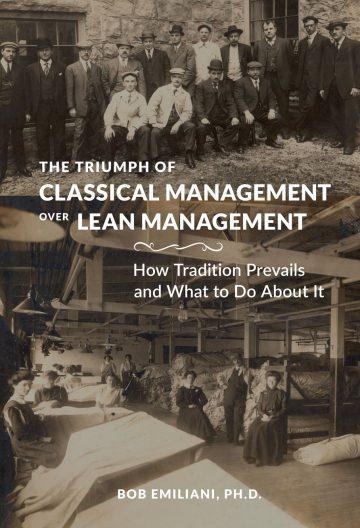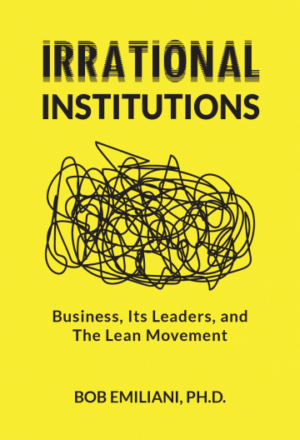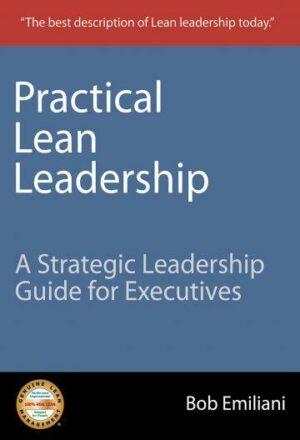The Triumph of Classical Management
The most important Lean problem has now been solved.
Since the inception of modern progressive management in the late 1800s, its creators and devoted practitioners have persistently encountered disinterest among corporate executives despite its wide-ranging benefits. The newest form of progressive management, Lean management, also suffers from executive disinterest. Why? Decades of effort to understand this phenomenon has yielded no new insights — until now.
The Triumph of Classical Management critically examines the institution of leadership and solves a major business problem that has endured for more than 100 years. It provides a comprehensive explanation for why executives reject Lean management. It also provides practical solutions for how to gain acceptance for Lean management and an alternative. The findings can also be applied to other types corporate transformation efforts.
Deming’s “system of profound knowledge” is designed to enable progress. The Triumph of Classical Management identifies a countervailing force that obstructs progress: the “system of profound privilege.” The two systems work against one another, which is why both Deming’s vision of management and Lean have been so difficult to realize in practice (as has OpEx, Agile, Six-Sigma, TQM, TOC, etc.). Therefore, both systems must be recognized and understood to break the logjam and make greater progress.
You might feel as others have felt when reading The Triumph of Classical Management: “shocked, then discouraged, then relieved, and even ideologically freed!”
And don’t forget to read Irrational Institutions, Management Mysterium, and The Aesthetic Compass to gain a complete understanding of how you can more effectively advance progressive management. This series of four books meticulously expose the forces that guide leaders’ thinking which results in maintaining the status quo and continued adherence to archaic classical management. Progress is made when minds are opened.
Click here to learn about the Conquering Barriers online course.
Reviews of The Triumph of Classical Management
[It] should be standard reading for lean practitioners. [Emiliani] adopts a challenging “in-your-face” style, which will make some readers uncomfortable. That should be no excuse to ignore the thinking. I recommend it.
Dr. Ian Matheson
Extremely valuable book.
Robert van der Velde
IMPORTANT! If you practice Lean, TPS, Six Sigma or any other derivative of process improvement then you should be reading this book. Whether you like it or not, eventually you’ll graduate to strategic initiatives that involve a much larger scope, some of you have already done this. If you have run into conflicting messages from senior leadership or feel your not getting the support you would expect there is a good reason. Dr. Emiliani’s book can give you not only valuable insight Into why, but help provide a framework to overcome these differences in culture that exist between employees and leadership that often drive contrarian decisions. This book is by far one of the best books on corporate culture as it relates to the Lean movement I’ve ever read. It is honest, intelligent and does not sugar coat the realities. In fact, it is on par with ‘the machine‘ in terms of transformative ideology. Get it, read it, implement it.
Forrest McCracken
Your book is superb. 👍
Justin Watts
For me, as impactful as Ohno’s Workplace Management and Deming’s The New Economics.
Jim Myaard
A great (if somewhat depressing) analysis of the political, sociological, and even psychological forces that keep executives from embracing lean. It opened my mind to many dimensions of the problem I had not considered previously… Emiliani’s book helps make the problem visible and gets one thinking about some countermeasures, especially in the area of marketing lean better. (Read Ken’s review).
Ken Eakin
More Information
Click here to read the backstory on this book. Click here to read criticism of the book.
Book Details
The Triumph of Classical Management Over Lean Management: How Tradition Prevails and What to Do About It
by Bob Emiliani
Cubic, LLC South Kingstown, RI, USA
301 pages • ISBN 978-0-9898631-9-3 • February 2018 (updated December 2018)
Table of Contents
Preface
Introduction
1. A Study of Executive Resistance to Lean
2. Political Economy, Politics, and Lean Management
3. Metaphysical CEOs and Lean Management
4. Dismantling Classical Management
5. Two Alternatives to Lean Management
Final Thoughts
Appendix – Selected Readings
About the Author





